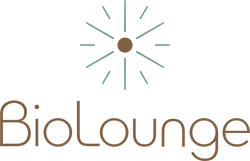March is women's health month so there's no better time to shine the spotlight on the research around prevention and women's health optimization. While chronic diseases plague more women now than ever, we've never had more research around prevention and longevity than we do today. In 2022, the biggest health risk for women include:
1. Cardiovascular disease
2. Cancer
3. Osteoporosis
4. Depression and anxiety
5. Dementia and Alzheimer's
6. Diabetes
These diagnoses are, in large part, the result of imbalances in the body that begin years or even decades prior. The sad truth is that the screenings offered in conventional medicine are outlined by insurance companies.
These screenings do not aim prevent disease, they only aim to diagnose early.
Most doctors' hands are tied by what insurance will cover and forcing them to limit screenings and visit times. There is no way to properly screen and prevent disease in a 10 minute annual visit and a basic lab panel. Risk assessment and prevention take a deeper investigation and prevention plan.
This is what women need and deserve for true prevention!
1. Thorough health and family history
Your family and health history matter! Did you know that even the way you were born increases or decreases lifelong disease risk? Childhood illnesses, exposures and where you grew up influence the way your body will manage infections, stress and injury down the road. A thorough health and family history inform your provider about the most appropriate screenings. Your story matters and holds the clues to risk and prevention!
2. Nutrition and micronutrient analysis
The leading disease risks including heart disease, cancer, diabetes and osteoporosis are directly linked to not only your diet, but your ability to digest and absorb nutrients while keeping your body in balance. Research indicates that that proper nutrition is among the most important factors for preventing heart disease, diabetes and dementia.
3. Bone density scan
Bone density is critical to a healthy lifespan. For women, we are at increased risk of losing density within the 5 years after menopause, but clinically, we see loss of bone prior to menopause for many other reasons. Incredibly, Jeff is able to prevent bone loss and REBUILD bone even after menopause with a combination of nutrition, supplementation and hormone optimization. Research indicates that broken bones later in life directly increased risk of mortality. Keeping bones strong is essential to health and longevity.
4. Hormone assessment
While we often think of hormones during adolescence, menopause and around our menstrual cycle, the fact is that your sex hormones are influencing everything from your brain health to bones, histamine levels, digestion and more. Maintaining balanced hormones levels reduces inflammation, protects the brain, improves sleep and mood, allows for muscle building and elevates overall health and feeling of wellness. Moreover, you need to not only produce the right amount of hormones, but you also need to metabolize and excrete them properly. A thorough hormone assessment should be part of your annual preventative screening to assure you feel your best and age well.
5. Inflammatory analysis and risk assessment
Research continues to mount that the biggest risk factor for chronic disease manifestation are triggers to the immune system that increase inflammation. More in-depth laboratory panels that identify markers of inflammation and root causes allow us, as providers, to reverse risk at the source. Currently, routine conventional screenings miss these critical markers which include, but are not limited to, hsCRP, homocysteine, Vitamin D, oxLDL, advanced lipid panels, etc.
Learn more about our comprehensive and tailored Head-to-Toe screenings here.

